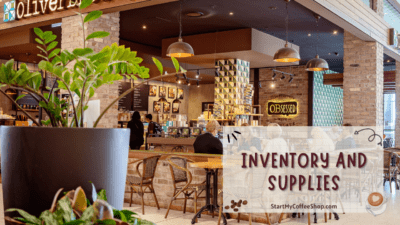In today’s fast-paced world, the convenience of drive-thru coffee shops has gained immense popularity. If you’ve ever dreamt of starting your own coffee business, a drive-thru coffee shop might be a great venture to consider. However, before embarking on this journey, it’s crucial to understand the costs involved.
The cost to start a drive-thru coffee shop can vary depending on factors such as location, size, equipment, permits, and renovations. On average, it can range from $80,000 to $300,000 or more.
In this article, I will break down the various expenses you must consider when starting a drive-thru coffee shop.
1. Location:
It is essential to identify high-traffic areas with excellent visibility and convenient accessibility for potential customers. However, it’s important to bear in mind that these prime locations typically command higher costs.
When searching for the right location, you have several options to consider. Leasing a property allows you to initiate your business without a substantial upfront isnvestment. This approach provides flexibility and the opportunity to test the market before committing to a long-term arrangement. On the other hand, purchasing a property grants you complete ownership and control over your location. While this option may require a significant initial investment, owning the property can offer stability and the potential for property value appreciation over time.
Alternatively, exploring the possibility of utilizing an existing commercial space can be cost-effective. By retrofitting the space to suit your specific needs, you can save time and money compared to starting from scratch.
By carefully evaluating your options, conducting thorough market research, and considering your budget, you can identify the perfect location for your drive-thru coffee shop. This strategic decision will set the foundation for attracting customers and driving the growth of your business.
2. Construction and Renovation:
Transforming your selected location into a fully operational drive-thru coffee shop requires investment in construction and renovation. This process entails making modifications to the existing structure to facilitate drive-thru lanes, installing windows for order placement, creating a pickup window for convenient customer service, and designing a layout that ensures efficiency for both customers and employees.
Budgeting for this phase is essential, as it involves several components. Firstly, you need to allocate funds for obtaining the necessary permits to comply with local regulations and building codes. These permits ensure that your drive-thru coffee shop meets safety standards and other legal requirements. Additionally, consider the cost of hiring architectural services to create detailed plans and drawings that align with your vision and comply with local regulations.
Structural modifications may also be necessary to accommodate the drive-thru concept. This can include adjusting the building’s layout, constructing additional walls or partitions, and implementing appropriate signage and branding elements. Keep in mind that these modifications may incur additional expenses, such as labor costs and materials.
By carefully planning and budgeting for construction and renovation expenses, you can ensure that your chosen location is transformed into a functional and inviting drive-thru coffee shop that meets the needs of your customers and provides a pleasant working environment for your staff.
3. Equipment and Furnishings:
Equipping your coffee shop with the appropriate tools and furnishings is crucial for its smooth operation. To create a high-quality coffee experience, you’ll need essential equipment such as a commercial-grade espresso machine, grinders to freshly grind beans, blenders for specialty drinks, coffee brewers to ensure consistent brews, refrigerators to store perishable ingredients, display cases for pastries and snacks, and storage cabinets to keep supplies organized.
In addition to equipment, providing comfortable seating is essential for customers who wish to enjoy their coffee on-site. Choose furniture that aligns with your brand’s aesthetic and provides a cozy atmosphere. Don’t forget about the drive-thru communication systems, including speaker systems and order-

taking devices, to streamline the customer experience.
When sourcing your equipment and furnishings, conduct thorough research to identify reputable suppliers. Compare prices, warranties, and customer reviews to ensure you get the best value for your investment without compromising on quality. Consider reaching out to industry professionals or attending trade shows to stay updated on the latest technology and trends in coffee shop equipment.
By investing in the right tools and furnishings, you can create a well-equipped and inviting environment for your customers while optimizing the efficiency of your coffee shop operations.
Read more about Best Nespresso Coffee Maker: Finding Perfection in Every Cup
4. Licenses and Permits:
Running a drive-thru coffee shop entails obtaining several licenses and permits to comply with legal and regulatory standards. These may include health permits to ensure safe food handling practices, business licenses to operate legally, and zoning approvals to confirm that your chosen location aligns with local regulations.
The costs associated with acquiring these permits can vary depending on your specific location and the governing authorities. Fees may differ from one jurisdiction to another, and some permits may require annual renewals. It is crucial to conduct thorough research and consult with local authorities or a business advisor to understand the specific requirements and associated costs for your area.
Engaging with local authorities early in the planning process will help you navigate the necessary steps and ensure compliance with all applicable regulations. They can provide guidance on the required permits, assist with completing the necessary paperwork, and provide insight into any additional inspections or requirements specific to drive-thru coffee shops.
Understanding the licensing and permit landscape is crucial for running your drive-thru coffee shop legally and avoiding potential penalties or closures due to non-compliance. By investing time and resources into the proper permits, you can operate your business confidently and provide a safe and enjoyable experience for your customers.
5. Staffing and Training:
Start by determining the number of employees you will need to handle various shifts and responsibilities, taking into account peak hours and the volume of customers you anticipate. Consider roles such as baristas, cashiers, kitchen staff, and supervisors.
When budgeting for staffing costs, take into account wages, which may vary based on experience and local labor market rates. Don’t forget to include additional expenses such as payroll taxes and potential benefits like healthcare or retirement plans if you choose to offer them.
Investing in training programs for your team is essential. Provide comprehensive training to ensure consistency in coffee preparation, customer service, and standard operating procedures. Ongoing training and development opportunities can improve the skills of your employees, boost their job satisfaction, and ultimately enhance the quality of service and customer satisfaction.
Creating a positive and inclusive work environment is also important. Foster a culture of teamwork, open communication, and mutual respect. Encourage employee feedback and provide opportunities for growth within the company. Recognize and reward outstanding performance to motivate and retain talented individuals.
6. Marketing and Branding:
Creating a strong brand identity and implementing an effective marketing strategy is essential for attracting customers to your drive-thru coffee shop. Begin by allocating a budget for key branding elements such as logo design, which will be the visual representation of your business. Invest in attractive signage that catches the attention of passersby and communicates your offerings.
Developing a user-friendly and visually appealing website is crucial in today’s digital age. Ensure that your website provides information about your menu, location, and contact details, and consider incorporating online ordering capabilities for added convenience.
Social media platforms offer a powerful marketing tool. Utilize platforms like Instagram, Facebook, and Twitter to engage with your target audience, share enticing visuals of your coffee creations, and run promotions or contests. Consider investing in paid advertising campaigns on social media to increase your reach.
Local advertising can also play a significant role in promoting your brand. Explore opportunities to advertise in local publications, sponsor community events, or collaborate with nearby businesses for cross-promotion.
Engaging with the community is key. Participate in local events, support local charities, and consider offering discounts or loyalty programs to foster customer loyalty. Building relationships with neighboring businesses can also lead to mutually beneficial partnerships.
Remember, consistency is key. Ensure that your brand identity is reflected across all touchpoints, from your physical space to your online presence. By developing a strong brand identity and implementing effective marketing strategies, you can attract customers to your drive-thru coffee shop and cultivate a loyal customer base.
7. Inventory and Supplies:

Maintaining a well-stocked inventory is crucial for the smooth operation of your drive-thru coffee shop. To meet customer demands, you’ll need to ensure a steady supply of essential items. Start by stocking up on high-quality coffee beans, as they form the heart of your beverages. Consider offering a variety of flavors and blends to cater to different preferences.
In addition to coffee beans, you’ll need to have an ample supply of syrups, milk, and other ingredients necessary for crafting specialty drinks. Paper cups, lids, and napkins are essential for serving your beverages to-go. It’s important to source eco-friendly options if sustainability is a key aspect of your brand.
Don’t forget about the necessary cleaning supplies to maintain cleanliness and hygiene in your coffee shop. This includes cleaning agents, brushes, and other equipment required for regular maintenance.
Building strong relationships with suppliers and wholesalers is beneficial for your business. This allows you to negotiate favorable pricing and establish a reliable supply chain. Consider working with local suppliers or partnering with distributors who specialize in coffee shop inventory to ensure efficient and timely deliveries.
Implementing a robust inventory management system can help you track stock levels, forecast demand, and prevent any shortages. Regularly review your inventory to identify popular items and adjust your ordering accordingly to meet customer demands while minimizing waste.
By effectively managing your inventory and establishing reliable supplier relationships, you can ensure that your drive-thru coffee shop is well-equipped to serve customers and maintain a smooth operation.
Read more about Best Nespresso Machine for Iced Coffee: Your Way to Iced Coffee Nirvana
8. Utilities and Operational Costs:
When running a drive-thru coffee shop, it’s important to consider the ongoing operational expenses that contribute to the day-to-day functioning of your business. These expenses include electricity to power your equipment, water for beverage preparation and cleaning, and internet connectivity for efficient communication and online operations.
In addition to utilities, you should factor in other recurring costs such as waste management, including garbage collection and recycling services. Maintaining a clean and environmentally responsible establishment is not only important for customer satisfaction but also for demonstrating your commitment to sustainability.
It’s crucial to account for monthly bills associated with your coffee shops, such as rent or mortgage payments if you own the property, as well as insurance premiums to protect your business against potential risks. Consider budgeting for maintenance costs to ensure that your equipment, furniture, and facilities remain in optimal condition.
Other operational expenses may include accounting services to handle financial records, tax obligations, and payroll management. Additionally, investing in a reliable and efficient point-of-sale (POS) system is essential for streamlined transactions, inventory management, and sales reporting.
Having a clear understanding of these recurring expenses is vital to maintaining profitability and financial stability. Regularly reviewing and tracking your operational costs will help you make informed decisions, adjust pricing if necessary, and identify areas for potential cost savings.
Summary
Starting a drive-thru coffee shop can be an excellent entrepreneurial endeavor. However, it’s crucial to carefully plan and budget for the various costs involved. By considering location, construction, equipment, licenses, staffing, marketing, inventory, and operational expenses, you can create a solid financial foundation for your drive-thru coffee shop.
Frequently Asked Questions

Q: Do I need prior experience in the coffee industry to start a drive-thru coffee shop?
While prior experience in the coffee industry can be advantageous, it is not a strict requirement.
Q: What are the ongoing expenses involved in running a drive-thru coffee shop?
Ongoing expenses include employee wages, inventory and supplies, utilities, maintenance, marketing, permits and licenses renewal, insurance, and operational costs.
Q: How long does it take to set up a drive-thru coffee shop?
It can take anywhere from a few months to over a year.
To learn more on how to start your own coffee shop checkout my startup documents here
Please note: This blog post is for educational purposes only and does not constitute legal advice. Please consult a legal expert to address your specific needs.

Hi! I’m Shawn Chun
My adventure in coffee began when I first launched my first coffee shop back in the early 2000s. I had to figure out so many things on my own and to make it worse within 2 years of opening two large corporate coffee chains moved in just blocks away from me!
As I saw smaller and even some larger coffee shops in the neighborhood slowly lose customers to these giant coffee chains and slowly close up shop, I knew that I had to start getting creative…or go out of business.
I (like you may be) knew the coffee industry well. I could make the best latte art around and the foam on my caps was the fluffiest you have ever seen. I even had the best state-of-the-art 2 group digital Nuova Simonelli machine money could buy. But I knew that these things alone would not be enough to lure customers away from the name brand established coffee shops.
Eventually, through lots of trial and error as well as perseverance and creativity I did find a way to not only survive but also thrive in the coffee/espresso industry even while those corporate coffee chains stayed put. During those years I learned to adapt and always faced new challenges. It was not always easy, however, in the end, I was the sole survivor independent coffee shop within a 10-mile radius of my location. Just two corporate coffee chains and I were left after that year. All told the corporate coffee chains took down over 15 small independent coffee shops and kiosks and I was the last one standing and thriving.
Along the years I meet others with the same passion for coffee and I quickly learned that it is not only “how good a barista is” that makes a coffee shop successful, but the business side of coffee as well.
Hence why I started this website you are on now. To provide the tools and resources for up and coming coffee shop owners to gain that vital insight and knowledge on how to start a coffee shop successfully.
Stick around, browse through my helpful blog and resources and enjoy your stay! With lots of LATTE LOVE!
Shawn







